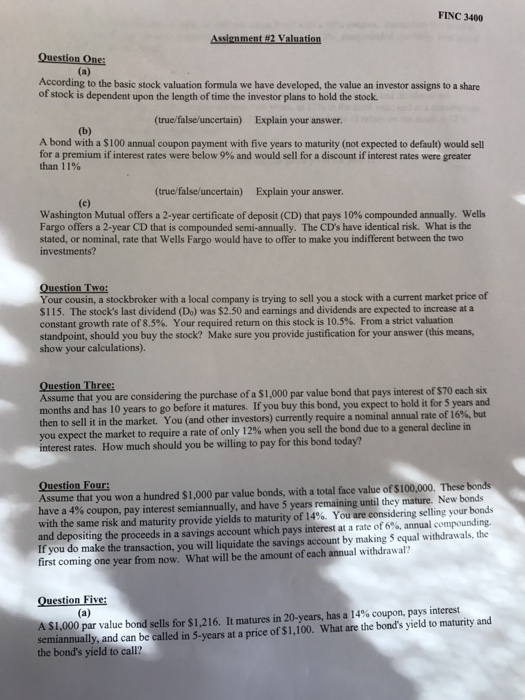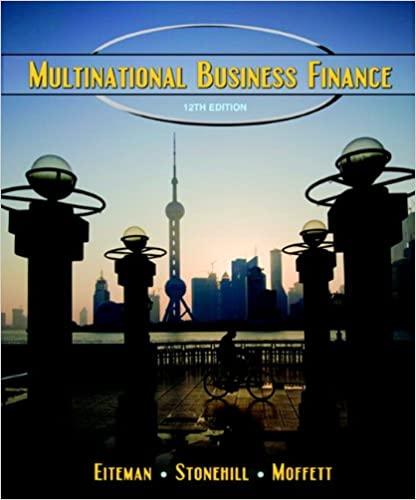FINC 3400 According to the basic stock valuation formula we have developed, the value an investor assigns to a share of stock is dependent upon the length of time the investor plans to hold the stock (true/false/uncertain) Explain your answer. A bond with a $100 annual coupon payment with five years to maturity (not expected to default) would sell for a premium if interest rates were below 9% and would sell for a discount if interest rates were greater than 11% (true/false/uncertain) Explain your answer Washington Mutual offers a 2-year certificate of deposit (CD) that pays 10% compounded annually. Wells Fargo offers a 2-year CD that is compounded semi-annually. The CD's have identical risk. What is the stated, or nominal, rate that Wells Fargo would have to offer to make you indifferent between the two investments? Question Two: Your cousin, a stockbroker with a local company is trying to sell you a stock with a current market price of $115. The stock's last dividend (Do) was $2.50 and earnings and dividends are expected to increase at a constant growth rate of 8.5%. Your required return on this stock is 10.5%. From a strict valuation standpoint, should you buy the stock? Make sure you provide justification for your answer (this means, show your calculations). Assume that you are considering the purchase of a $1,000 par value bond that pays interest of $70 each six months and has 10 years to go before it matures. If you buy this bond, you expect to hold it for S years and then to sell it in the market. You (and other investors)currently require a nominal annual rate of16 you expect the market to requi interest rates. How much should you be willing to pay for this bond today? re a rate of only 12% when you sell the bond due to a general decline in Assume that you won a hundred $1,000 par value bonds, with a total face value of $100,000. These have a 4% coupon, pay interest semiannually, and have 5 years remaining until they mature. New bonds with the same risk and maturity provide yields to maturity of 14% You are considering selling your bonds and depositing the proceeds in a savings account which pays interest at a rate of 6% annual compounding. If you do make the transaction, you will liquidate the savings account by making 5 equal withdrawals, the first coming one year from now. What will be the amount of each annual withdrawal? Question Five semiannually, and can be called in 5-years at a price of $1,100. What are the bond's yield to maturity and the bond's yield to call? S 1,000 par value bond sells for $1,216. It matures in 20-years, has a 14% coupon, pays interest







